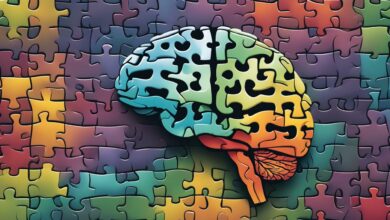The Importance of Nutrition in Healthcare

We cannot stress enough the crucial role that nutrition plays in healthcare. At the heart of wellness and disease prevention and management is a healthy diet, ensuring that our bodies receive the nutrients they need to function optimally. Poor nutrition, on the other hand, can lead to a variety of health problems, from obesity and diabetes to cardiovascular disease and cancer.
Key Takeaways:
- Nutrition is essential in promoting overall wellness and preventing diseases
- A healthy diet ensures that the body receives the necessary nutrients to function optimally
- Poor nutrition can lead to a variety of health problems, such as obesity, diabetes, cardiovascular disease, and cancer.
Introduction to the Role of Nutrition in Healthcare
The importance of nutrition in healthcare cannot be overstated. At a fundamental level, nutrition is the fuel that powers our bodies, providing the energy and nutrients necessary for optimal function. But beyond this, nutrition plays a crucial role in preventing and managing a range of diseases and conditions, from obesity and diabetes to heart disease and cancer.
As healthcare professionals, we understand the vital role that nutrition plays in promoting overall health and well-being, and we are committed to educating patients on the importance of maintaining a healthy diet. In this article, we will explore the role of nutrition in healthcare, outlining its many benefits and providing practical tips for maintaining a healthy eating plan. From disease prevention to disease management, nutrition plays a critical role in all aspects of healthcare, and we are excited to share our knowledge and expertise with you.
The Benefits of a Balanced Diet for Overall Health
As we previously mentioned, maintaining a balanced diet is essential to achieve optimal overall health. But what exactly are the benefits of a well-rounded and nutritious diet?
First and foremost, a balanced diet can help improve energy levels, allowing you to perform everyday tasks with increased efficiency. It can also help boost your immune system, making you less susceptible to illnesses and diseases.
Furthermore, a healthy diet can help prevent chronic diseases such as type 2 diabetes, heart disease, and certain types of cancer. By providing your body with the necessary nutrients, a balanced diet can help maintain healthy blood pressure, cholesterol, and blood sugar levels.
Research has also shown that a nutritious diet can enhance cognitive function and improve mental health. Eating a balanced diet has been linked to lower rates of depression, anxiety, and other mental health disorders.
Overall, maintaining a balanced diet can improve your quality of life and contribute to your overall well-being. By including a variety of fruits, vegetables, whole grains, lean proteins, and healthy fats in your diet, you can ensure that you are getting all the necessary nutrients to support a healthy lifestyle.
Tips for Maintaining a Healthy Diet
Adopting a healthy diet can seem like a daunting task, but with some simple tips and tricks, you can turn it into a manageable lifestyle change. Here are some tips for maintaining a nutritious diet:
- Plan your meals: Planning meals in advance can help you stay on track and avoid unhealthy food choices. Consider healthy meal prep services or set aside time each week to plan your meals and grocery shop.
- Make smart food choices: Focus on incorporating whole, nutrient-dense foods into your diet, such as fruits, vegetables, whole grains, lean proteins, and healthy fats. Avoid processed foods, sugary drinks, and foods high in saturated and trans fats.
- Control your portions: Overeating can lead to weight gain and other health problems. Use smaller plates and consider measuring your portion sizes to help control your intake.
- Eat mindfully: Take the time to savor your food and enjoy the experience of eating. Avoid distractions like watching TV or using your phone while eating, as this can lead to overeating.
- Stay hydrated: Drinking plenty of water throughout the day can help keep you feeling full and energized. Avoid sugary drinks and limit your intake of caffeine and alcohol.
Remember, making healthy dietary choices is a long-term commitment, but it can be a rewarding and life-changing one. Incorporating these tips into your daily routine can help you maintain a healthy diet and achieve better overall health.
The Impact of Nutrition on Common Health Issues
What we eat can have a significant impact on our susceptibility to common health issues. Studies show that poor dietary choices contribute to the development of conditions such as obesity, diabetes, cardiovascular disease, and more.
Obesity is a prevalent problem in the United States, affecting over 42% of the adult population. A diet high in processed foods and added sugars is a contributing factor to weight gain. By contrast, a diet rich in vegetables, fruits, whole grains, and lean proteins can aid in maintaining a healthy weight.
Diabetes is another common health issue that is affected by nutrition. A diet high in refined carbohydrates and sugars can lead to insulin resistance and type 2 diabetes. On the other hand, a diet that includes complex carbohydrates, healthy fats, and lean proteins can help regulate blood sugar levels and prevent the onset of diabetes.
Cardiovascular disease, including heart disease and stroke, is another condition that can be influenced by nutrition. A diet high in saturated and trans fats, sodium, and added sugars can contribute to high blood pressure, high cholesterol, and inflammation, all of which are risk factors for cardiovascular disease. A diet that emphasizes unsaturated fats, fiber, antioxidants, and potassium can lower the risk of developing these conditions.
The impact of nutrition on common health issues underscores the importance of making informed dietary choices. By adopting a healthy and balanced diet, individuals can effectively manage and prevent these health issues, promoting optimal health and well-being.
Sources of Reliable Nutritional Information
With the vast amount of nutritional information available online, it can be challenging to determine what sources are reliable and trustworthy. To ensure you are getting accurate information, it is essential to rely on reputable sources. Here are some reliable sources of nutritional information:
Registered Dietitians
Registered dietitians are experts in the field of nutrition and can provide personalized advice and guidance for achieving optimal health. They have completed extensive education and training and are licensed to provide nutrition counseling. You can find a registered dietitian near you through the Academy of Nutrition and Dietetics website.
Reputable Websites
When seeking nutritional information online, it is crucial to rely on reputable websites. Look for sites that are run by government agencies, academic institutions, or reputable health organizations. Some examples include the Centers for Disease Control and Prevention, National Institutes of Health, and Mayo Clinic.
Scientific Research
Scientific research studies provide valuable insights into the effects of different nutrients on our bodies. Peer-reviewed journals such as the Journal of the Academy of Nutrition and Dietetics, Nutrition Reviews, and the American Journal of Clinical Nutrition are reliable sources of scientific information.
By relying on these sources of information, you can have peace of mind knowing that the advice you receive is based on sound scientific evidence and not influenced solely by marketing or personal opinion.
The Role of Nutrition in Preventive Care
Preventive care strategies are essential for maintaining overall health and wellness. Nutrition plays an important role in preventive care by reducing the risk of chronic diseases, such as obesity, diabetes, and cardiovascular disease.
At every stage of life, following a healthy diet that comprises all the essential nutrients is necessary to help prevent various diseases. Proper nutrition can boost the immune system, contributing to better health outcomes, and reducing the need for medical interventions.
It is crucial to understand the connection between nutrition and preventive care strategies for optimal health and well-being. By maintaining a balanced diet, individuals can promote better health outcomes and reduce the need for medical interventions.
At our healthcare facility, we believe in incorporating nutrition education and counseling into our patient care plans to support preventive care strategies. Our team of registered dietitians works closely with patients to develop personalized nutrition plans, empowering them to take control of their health.
Nutrition and Disease Management
Proper nutrition is crucial in managing various diseases. A well-balanced diet can complement medical treatments and therapies, providing an additional layer of support in managing conditions such as cancer, autoimmune disorders, and gastrointestinal issues.
For cancer patients, maintaining adequate nutrition is essential to support the body during treatment. A diet rich in protein and healthy fats can help to preserve lean body mass and promote healing. Antioxidant-rich foods such as berries, leafy greens, and nuts can also aid in reducing inflammation and preventing further damage to healthy cells.
In autoimmune disorders, nutrition can play a vital role in reducing inflammation and supporting immune function. Incorporating anti-inflammatory foods such as fatty fish, turmeric, and ginger can help to reduce symptoms and flare-ups. Additionally, probiotic-rich foods such as yogurt and kefir can promote gut health and improve overall immunity.
For those with gastrointestinal issues, a low-FODMAP diet may be beneficial in reducing symptoms such as bloating, gas, and diarrhea. This diet restricts certain types of carbohydrates that can be difficult to digest, such as lactose and fructose. A healthcare provider or registered dietitian can assist in creating an individualized plan based on specific needs.
It is important to note that while nutrition can provide significant support in managing various diseases, it should never be used as a replacement for medical treatment or therapy. Consulting with a healthcare provider or registered dietitian can ensure that dietary changes are safe and effective in conjunction with other treatments.
The Connection Between Nutrition and Mental Health
As we’ve discussed, maintaining proper nutrition is essential for overall wellness and disease prevention. However, what is often not as widely recognized is the link between nutrition and mental health.
Research has shown that there is a significant and complex relationship between what we eat and how we feel. Nutritional deficiencies or imbalances can contribute to a range of mental health conditions, including anxiety, depression, and cognitive dysfunction.
For example, studies have found that diets high in refined sugars and unhealthy fats may increase the risk of depression and anxiety. In contrast, diets rich in whole foods, such as fruits, vegetables, whole grains, and lean proteins, have been associated with lower rates of depression and better cognitive function.
Furthermore, certain nutrients – such as omega-3 fatty acids, vitamin D, B vitamins, and zinc – have been shown to have a positive impact on mental health, specifically in reducing symptoms of depression and anxiety.
By prioritizing nutritious whole foods and supplements, individuals can improve their mental health and overall well-being.
Nutrition for Different Life Stages
As our bodies change throughout life, so do our nutritional needs. It’s important to understand the unique requirements of each life stage to ensure optimal health and well-being.
Childhood: During childhood, proper nutrition is crucial for growth and development. Children need a balanced diet that includes a variety of nutrient-dense foods such as fruits, vegetables, whole grains, lean proteins, and low-fat dairy products. Encouraging healthy eating habits during childhood can also help prevent future health issues such as obesity and cardiovascular disease.
Adolescence: Adolescents require more calories and nutrients due to rapid growth and development. They also tend to have increased nutritional needs for bone health. Encouraging healthy eating habits during adolescence can set the stage for a lifetime of good health.
Adulthood: Adults need a balanced diet that includes plenty of fruits, vegetables, whole grains, lean proteins, and healthy fats. It’s important to pay attention to portion sizes and limit intake of processed and high-fat foods. For women, proper nutrition is especially important during pregnancy and lactation.
Senior Years: As we age, our nutritional needs change. Older adults may require fewer calories but still need plenty of nutrients. A diet that includes nutrient-dense foods such as fruits, vegetables, whole grains, lean proteins, and low-fat dairy products can help prevent age-related health issues such as osteoporosis and cognitive decline.
By understanding the unique nutritional needs of each life stage, we can make informed dietary choices that support our health and well-being.
Integrating Nutrition into the Healthcare System
The importance of nutrition in healthcare cannot be overstated. For this reason, it is imperative that healthcare providers integrate nutrition education and counseling into their practices. By doing so, patients can gain valuable knowledge on how to make informed dietary choices that support their health and well-being.
Integrating nutrition into the healthcare system can take many forms. For example, healthcare providers can offer one-on-one nutrition counseling sessions, group educational sessions, and online resources that provide reliable and accurate nutritional information. Additionally, hospitals and clinics can offer healthy food options for patients and staff, promoting healthier eating habits.
There are several potential benefits to incorporating nutrition-focused initiatives into the healthcare system. For one, it can lead to better health outcomes for patients. By addressing the role of nutrition in disease prevention and management, healthcare providers can help patients take an active role in their own health.
Furthermore, integrating nutrition into the healthcare system can lead to cost savings. By emphasizing preventive care through nutrition, healthcare providers can reduce the need for expensive medical treatments and hospitalizations. In fact, some studies have shown that nutrition education and counseling can lead to significant reductions in healthcare costs.
Ultimately, integrating nutrition into the healthcare system is an essential step toward improving overall health and well-being. By prioritizing nutrition, healthcare providers can help patients take control of their health and prevent or manage chronic diseases.
The Importance of Nutrition in Healthcare
In this article, we have explored the crucial role that nutrition plays in healthcare. It is clear that maintaining proper nutrition is essential for overall wellness and its impact in fighting against various diseases.
Conclusion
As we have seen, nutrition is a fundamental component of healthcare. By prioritizing nutrition and making informed dietary choices, individuals can take control of their health and well-being.
A balanced diet is crucial for ensuring optimal overall health, including improved energy levels, disease prevention, and enhanced cognitive function. Adopting a healthy diet can be challenging, but practical tips and advice for maintaining a nutritious eating plan can help.
Nutrition can greatly influence our susceptibility to common health issues, including obesity, diabetes, cardiovascular disease, and more. Nutrition also plays an essential role in managing various diseases, complementing medical treatments and therapies.
The link between nutrition and mental health is increasingly recognized, and understanding this connection can help in developing holistic approaches to mental health care. Nutritional needs vary at different stages of life, and ensuring optimal nutrition at each stage is critical for health and well-being.
Integrating nutrition education and counseling into healthcare practices is crucial for promoting better health outcomes. By prioritizing nutrition and making informed dietary choices, we can take control of our health and well-being, promoting wellness and disease prevention.
FAQ
Q: What is the importance of nutrition in healthcare?
A: Nutrition is crucial in healthcare as it plays a vital role in maintaining overall wellness and fighting against various diseases.
Q: What is the role of nutrition in healthcare?
A: The role of nutrition in healthcare is to provide the necessary nutrients for optimal bodily function, promote disease prevention, and support disease management.
Q: What are the benefits of a balanced diet for overall health?
A: A balanced diet has numerous benefits, including improved energy levels, disease prevention, and enhanced cognitive function.
Q: How can I maintain a healthy diet?
A: There are several tips for maintaining a healthy diet, such as meal planning, making smart food choices, and adopting sustainable eating habits.
Q: How does nutrition impact common health issues?
A: Nutrition greatly influences common health issues such as obesity, diabetes, cardiovascular disease, and more. Making proper dietary choices can help manage and prevent these conditions.
Q: Where can I find reliable sources of nutritional information?
A: Reliable sources of nutritional information include registered dietitians, reputable websites, and scientific research studies.
Q: What is the role of nutrition in preventive care?
A: Nutrition plays a crucial role in preventive care by reducing the risk of developing chronic diseases and promoting overall well-being.
Q: How can nutrition complement disease management?
A: Proper nutrition can complement medical treatments and therapies, providing an additional layer of support in managing conditions such as cancer, autoimmune disorders, and gastrointestinal issues.
Q: How does nutrition affect mental health?
A: Nutrition has a significant impact on mental health, affecting mood, cognitive function, and overall mental well-being.
Q: Are there specific nutritional requirements for different life stages?
A: Yes, nutritional needs vary at different life stages, such as childhood, adolescence, adulthood, and senior years. Each stage requires specific nutrients for optimal health.
Q: How can we integrate nutrition into the healthcare system?
A: Integrating nutrition education and counseling into healthcare practices is essential for promoting better health outcomes. Nutrition-focused initiatives can also have significant benefits.
Q: What is the conclusion regarding nutrition in healthcare?
A: In conclusion, nutrition plays a pivotal role in healthcare by promoting wellness, preventing diseases, and supporting disease management. Prioritizing nutrition and making informed dietary choices allows individuals to take control of their health and well-being.




